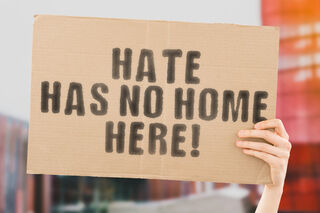Anger
Why People Take Their Anger Out on Others
Personality, polarization, and erosion of the self.
Posted December 4, 2021 Reviewed by Devon Frye
Key points
- Displaced aggression occurs when someone directs their anger toward an innocent bystander, rather than the provocateur.
- People low in agreeableness or high in narcissism may be more likely to display displaced aggression.
- Social trends, such as a rise in suicide and addiction, may be indicative of a kind of displaced aggression.
When people are in a bad mood after an argument, they may have a tendency to "take it out" on innocent others, such as their family members or friends. This kind of behavior is called displaced aggression.
Displaced aggression is a statistically robust psychological phenomenon. It involves a specific form of attack prompted by rumination on anger-inducing experiences and/or revenge-related thoughts, which might lead to the expression of anger on innocent people. Often, victims of aggression will not seek to confront the actual source of aggression (the original provocateur), and instead bully subordinates in an effort to relieve themselves of the stress that they carry.
Some researchers believe this to be an evolutionary trait, as signalled by the reduced stress-related neuroendocrine responses in aggressive trout when they see socially subordinate fish. In other words, seeing a potentially easy victim seems to calm the trout down.
Where is Displaced Aggression Easy to See?
Common situations where we see displaced aggression include domestic violence (approximately 1 in 3 women and 1 in 10 men 18 years of age or older experience domestic violence) and road rage (in 2019, 82 percent of people admitted to committing an act of road rage in the past year and there has been a 500 percent increase in reported cases of road rage over the last 10 years). So if your partner or spouse has a sudden seemingly unwarranted or exaggerated outburst or if you are cut off by a maniacal driver, think of displaced aggression.
What Type of Person Has Displaced Aggression?
The trait of "agreeableness" tends to protect one from displaced aggression. This trait refers to people who are trusting, altruistic, forthright, compliant, modest, or empathic.
Thus, the opposite of this—suspicious, selfish, indirect, rebellious, conceited, or insensitive people—tend to have more displaced aggression. These people also tend to be less flexible in their thinking, and as a result, can't let the anger go. Seething and ruminating, they take it out on the next subordinate innocent bystander.
And they tend to be more impulsive, too. Recent research has indicated that the functional connectivity between two key regions in the brain's "impulse control" (prefrontal cortex or PFC) centers (the dorsomedial PFC and dorsolateral PFC) was decreased. Alcohol can also trigger displaced aggression.
The Role of Narcissism in Displaced Aggression
People who are high in narcissism tend to be paragons of contradiction. On the one hand, they have grandiose self-assuredness and dominance. On the other hand, they have vulnerable insecurity and reactivity. When their egos are threatened by an activated memory of abuse, they will seek to harm a subordinate in order to ignore or deal with the threat of this memory.

A Hypothesis About Society's Trends
We live in a world that is politically polarized, scientifically polarized—e.g. the COVID-19 pandemic—and socio-economically polarized as well. Underlying this dynamic may be a narcissistic search for a subordinate in the service of displaced aggression. Each side thinks of the other as an inferior or subordinate in some way, and they take out their anger on the other group, without resolving their own psychological pain.
Rather than deeply connecting with the collective trauma that arises in part from a crisis of meaning, a phenomenon exacerbated by the global pandemic, people choose instead to disavow their own trauma by bullying or subjugating others after forming groups. The group serves as a shield against the precarious anxiety in being alive, and though it appears to be protective, there are correlative phenomena that deserve attention.
The Erosion of the Self in Displaced Aggression
While specific group statistics vary, in the past two decades, suicide rates have increased by 33 percent. According to the World Health Organization, suicide is globally the second leading cause of death among the young population (aged 15-29 years) irrespective of gender after road accidents. In the U.S., autoimmune diseases may be increasing. Bondage, discipline, dominance, submission, and sadomasochistic (BDSM) sexual behaviors have become normalized—BDSM-related fantasies were found to be common (40 to 70 percent) in both males and females, while about 20 percent reported engaging in BDSM. People are less likely to comply with taking medications, such that they increase their chances of heart and brain diseases. Opioid-related deaths spiked during the pandemic.
While you may look at all of these phenomena—autoimmunity, suicide, BDSM, non-compliance, and addiction—as separate, I argue that they have one possible thing in common: the erosion of the self. Perhaps the polarization in society is not as protective as we think it is, and perhaps the most lethal displacement of aggression is toward the self, obscured by the complicit "group" identity?
What Can We Do About This?
The first step is to be aware of displaced aggression as a tendency, and to ask: What if we are hurting ourselves by ignoring this? The second step is to give up identifying with a polarized group so that you have greater access to yourself as an individual. The third step is to either explore the role of your own pain in the context of collective trauma, or to give up this chase for causality, and to live into your greatest possibility instead. When all is said and done, this life is a relatively short one. You have one chance to live into your dreams if you don't hide behind the "group" that distracts you from how you, as an individual, can elevate society if you act into a field of possibility that construes all people and groups as one.
Facebook image: MilanMarkovic78/Shutterstock




